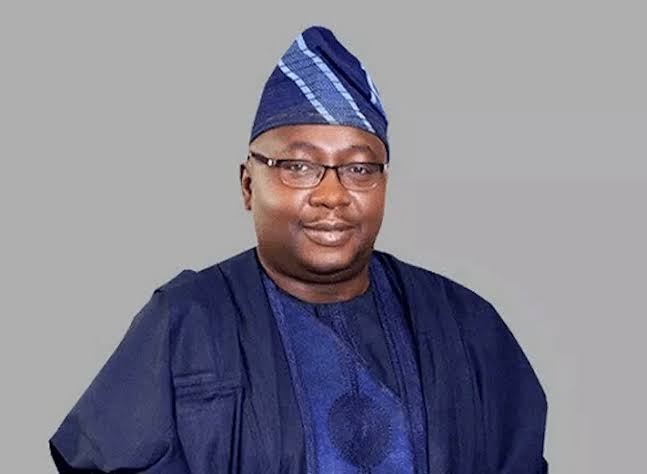The Nigerian power sector is facing an unsettling crisis, with frequent collapses of the national grid leaving millions without electricity for extended periods. But according to the country’s Minister of Power, Mr. Adebayo Adelabu, this situation is likely to persist until key issues, including the country’s security challenges and outdated infrastructure, are addressed.
In his recent appearance before the Senate Committee on Power, Adelabu painted a grim picture of the current state of Nigeria’s electricity grid, emphasizing that insecurity in the northern region of the country is preventing crucial repairs to the Ugwachi-Bauchi-Makurdi transmission line, a major cause of the recurring grid failures.
“The national grid will continue to collapse until we are able to address the insecurity in the northern part of the country, which is hindering the necessary repairs,” Adelabu told senators. “It is critical that the situation is stabilized before we can undertake repairs that would improve the grid’s reliability.”
Adelabu explained that while the grid’s frequent collapses are well-known, the real issue lies deeper in the country’s outdated power infrastructure, which requires a massive overhaul to function efficiently. He acknowledged that the grid’s fragility is further exacerbated by its age, with most of the system being decades old.
“It’s erroneous to say the grid collapsed 12 times in 2024,” he clarified. “In reality, we experienced 8 collapses, 5 of which were full, and 3 partial. The grid’s instability is a symptom of larger issues that require urgent attention.”
Unmet Needs and Budgeting Woes
One of the key issues discussed during the Senate meeting was the insufficiency of the current budgetary allocations for resolving these persistent challenges. Adelabu revealed that the Ministry of Power had requested a substantial portion of the federal budget to address power sector woes, yet the allocation remains highly constrained.
For the 2025 fiscal year, the ministry’s total budget allocation stands at a hefty N2 trillion, but a significant portion of this budget is allocated to servicing loans, leaving limited funds for actual infrastructural development.
“Out of the N2 trillion proposed for the power sector, a staggering N810 billion is earmarked for loan repayments,” Adelabu explained. “This includes multilateral and bilateral loans, as well as counterpart funding for ongoing projects, such as the Siemens power project.”
The minister highlighted that less than N250 billion is available for the core activities of the ministry, with most of this allocated to ongoing projects in a bid to stabilize the national grid. Despite this, there is a notable shortage of funding for the Transmission Company of Nigeria (TCN), the body responsible for maintaining and expanding the country’s transmission infrastructure.
“The Federal Government must take a more proactive role in financing TCN’s projects,” Adelabu urged. “There are over a hundred TCN projects that remain incomplete due to a lack of funding, with some at less than 40% completion.”
The issue of funding for TCN is made even more complicated by the ongoing reluctance to raise electricity tariffs, a move that could generate much-needed revenue for the transmission company. Without adequate tariff increases, TCN’s ability to fund critical projects remains severely limited, according to Adelabu.
Struggling with Public Expectations
Nigerians are feeling the brunt of the grid’s instability, with many communities reporting frequent power outages. As one of the most visible signs of the sector’s failure, these outages have left millions of Nigerians grappling with daily inconveniences and economic challenges.
“I can tell you, when we visit our constituencies, the first complaint we hear is about power outages. People tell us that transformers are down, poles are damaged, and the power supply is erratic,” Adelabu said. This frustration is mirrored across the country, as businesses and households struggle to cope with the unreliability of the grid.
Despite these challenges, the Minister remained cautiously optimistic, explaining that the ministry is doing what it can with the available resources. The government has already allocated N25 billion in an attempt to address some of the most urgent issues within the distribution segment, such as replacing damaged transformers and repairing poles.
“While our budget is far from sufficient, we are focused on completing between 8 to 12 priority projects this year, which should contribute to grid stability, particularly in areas where the power distribution network is failing most,” Adelabu stated.
The Role of Security in National Power Restoration
Perhaps the most pressing concern raised by the minister was the insecurity in northern Nigeria. This has become a critical barrier to repairing vital transmission lines that stretch across the region. According to Adelabu, this issue cannot be overstated.
“The national grid’s stability is directly tied to the security situation in the north,” he reiterated. “Until we address the security challenges in these areas, it will be difficult to carry out the necessary repairs to critical transmission infrastructure.”
Security concerns have escalated in several parts of the country, especially in the north, where insurgent groups and bandits have sabotaged power facilities. The government’s efforts to restore security in these regions are ongoing, but for now, the power grid remains vulnerable to repeated collapses.
Proposals for the Future
Looking forward, the Minister emphasized the need for a more comprehensive approach to reforming the power sector. He acknowledged that simply patching up the grid will not be enough to solve Nigeria’s electricity crisis.
“We need a complete overhaul of the power sector. This includes addressing the security situation, securing financing for TCN projects, and increasing the efficiency of the distribution network,” Adelabu concluded. “Without these steps, the national grid will continue to falter, and Nigeria will remain trapped in a cycle of unreliable power supply.”

